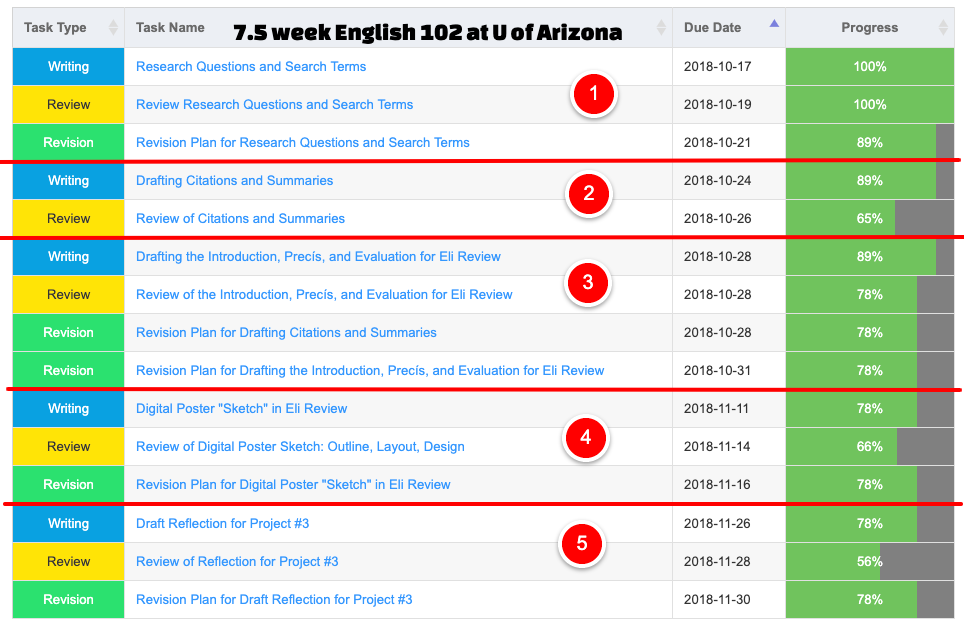In Fall 2018, six instructors at the University of Arizona piloted Eli Review peer feedback and revision in the following courses:
| Courses | Number of Reviews | Number of Revision Plans |
| First-Year Writing (fully online) |
5-7 | 5 |
| Nutritional Science | 4 | 4 |
| Fashion | 1 | 1 |
| Social and Behavioral Science Skills (Adobe Creative Cloud) |
6 | 5 |

At the conclusion of the pilot, Shelley Rodrigo and Catrina Mitchum administered a survey to about 80 students and six instructors. The following highlights are shared with their permission.
The results of this pilot suggest that not only are students more invested in peer review and seeing personal gains in the projects they reviewed in peer review, but also that instructors are better instructors with this program. Eli Review encourages scaffolding of larger projects in order to complete review cycles and the structure of the program forces instructors to break down what they’re asking of students and more clearly express the criteria required for the assigned projects.
Shelley Rodrigo,
Associate Director Writing Program, Online Writing
Associate Professor, Program in Rhetoric, Composition, and the Teaching of English
University of Arizona
Prior Peer Feedback Experiences vs Eli Review Peer Feedback
| Comparison | Faculty | Students | Statement |
| In the past | 60% | 48% | found peer feedback to be somewhat/very useful |
| With Eli Review | 100% | 82% | found peer feedback to be somewhat/very useful. |
Perceived Gains
| Agree | Statements |
| 69% | My writing improved because of the feedback I received from classmates on Eli Review this semester. |
| 79% | Eli Review helped me to give better feedback to my classmates about their writing. |
| 68% | The peer feedback I gave improved during the semester. |
| 60% | The peer feedback I received got better during the semester. |
| 82% | Getting ideas after reading work of classmates in Eli Review has been useful. |
| 78% | Creating revision plans and revising my own writing in Eli Review has been useful. |
Assignment Clarity
A portion of the survey was adapted from questions in the NSSE “Experiences with Writing” module. The questions touch on three aspects of good writing assignments— interactivity, meaning-making, and clarity.
The courses using Eli Review had consistently higher percentages of students indicated that all writing assignments included clear instructions, learning goals, grading criteria, and models/samples.
| At Least Some Writing Assignments | All Writing Assignments | Statements |
| 90% | 42% | There were clear instructions. |
| 90% | 49% | The instructor explained in advance what they wanted students to learn. |
| 91% | 62% | The grading criteria was explained in advance. |
| 86% | 64% | The instructor provided and discussed samples or models. |
Additional Resources
To learn more about Rodrigo and Mitchum’s pilot assessment about how faculty adapted their courses, please see their CCCC 2019 Poster Slides.
Or, get a copy of the survey items.

